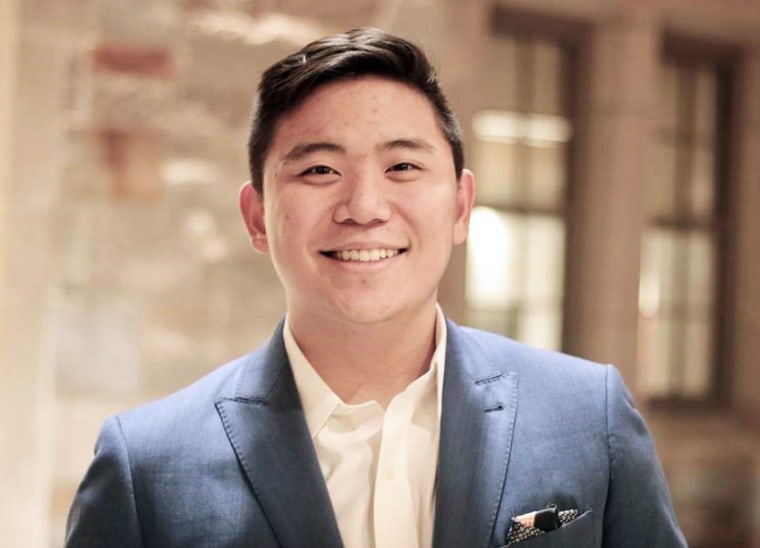When Massachusetts prosecutors announced charges in an unusual case — a former Boston College student accused of abusing her boyfriend in thousands of text messages and coercing him to take his own life — they were clear about one major stumbling block.
The focus of their investigation, Inyoung You, remains out of reach in her native South Korea.
And before You, 21, can be arraigned in the United States on the involuntary manslaughter charge, she must willingly return to the U.S. — or be subject to the apparatus of international law and the extradition process.
Either way, legal observers say, compelling her return could present several hurdles for prosecutors who may find themselves at the mercy of South Korean judicial officials also tasked with making sense of an already challenging case.
"It's going to be tricky," said Douglas McNabb, an international criminal defense lawyer who has handled dozens of international extraditions. "These things can drag out, and it wouldn't surprise me at all if it takes years" before coming to a resolution.
You and her boyfriend at Boston College, Alexander Urtula, had been dating for 18 months. Two months before his death, prosecutors say, she sent him about 47,000 texts, and in hundreds of them, told him to kill himself, "go die" and that the world would be better off without him.
On May 20, about 90 minutes before the start of his graduation ceremony, the 22-year-old biology major jumped to his death from a parking garage, authorities said.
You had been tracking him on that day, "as she frequently did on her phone," Rollins said, and she was present when he died.
The alleged abuse "became more frequent and more powerful and more demeaning in the days and hours leading up to Mr. Urtula's untimely death," Rollins added. If found guilty, You faces up to 20 years in prison.

In the case against You, holding her liable for a suicide may not correlate to South Korean law. The country has had an extradition treaty with the U.S. since 1999.
What might pose a problem in this case is the treaty's so-called dual criminality clause, which means a criminal offense is only extraditable if it is recognized in both countries and is punishable by a prison term of more than one year. Clear-cut examples include charges for murder or rape.
But the rarity of charging someone for another person's suicide may have little to no precedence in South Korea, and cause officials to hesitate in extraditing You, McNabb said.
"This is not your typical extradition proceeding in that it's an unusual approach for Massachusetts to take in the first place," he added. "That's really going to complicate the process because South Korea will have to make a determination as to whether there's a crime similar in South Korea to the one in the U.S."
Holding a person criminally responsible for someone else's suicide has not been widely tested, and only recently caught national attention in the case of Michelle Carter, another young woman in Massachusetts whose boyfriend took his own life after he received repeated text messages from her.
Her conviction in 2017 of involuntary manslaughter became a landmark moment in the state, opening the way for similar prosecutions.
Carter, who was sentenced to 15 months in jail in the suicide of Conrad Roy III, has filed an appeal to the U.S. Supreme Court, arguing her conviction violated her First Amendment right to free speech. It's unclear whether the high court will take her case.
As it stands, Massachusetts does not have legislation that is tailored to criminalizing suicide coercion, although a bill known as "Conrad's Law" is currently under consideration.
But with the case of You, South Korean officials may wrestle with whether she caused Urtula's suicide or if what she texted him should be protected under free speech, said Zachary D. Kaufman, an associate professor of law and political science at the University of Houston Law Center.
McNabb said prosecutors might have a better shot at extradition by amending their indictment to focus on an aspect of the case that isn't explicitly about whether she coerced his suicide. (For instance, prosecutors allege she was also physically abusive, although it's unclear to what extent.)
Under the treaty between the U.S. and South Korea, the South Korean minister of justice is also granted discretion on whether one of its citizens should be extradited.
As of now, there's still a chance she may voluntarily return.
Suffolk County District Attorney Rachael Rollins said at a news conference Monday that she was "cautiously optimistic" that You would decide to do so, and the Boston Globe reported prosecutors could have a decision within two weeks.
A district attorney spokesman said Friday he had no further information on the case, and efforts by NBC News to reach You or a representative have been unsuccessful.
If you or someone you know is in crisis, call the National Suicide Prevention Lifeline at 800-273-8255, text HOME to 741741 or visit SpeakingOfSuicide.com/resources for additional resources.

